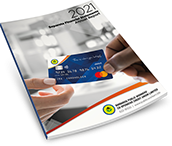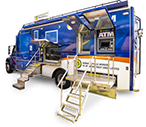
How to Deal with a Drastic Decrease in Income:
An effective way to deal with the understandable anxiety about finances is to pull together, face the realities as soon as possible, and come up with a plan.
Here are some ideas:
- Don’t panic! Analyze your current financial situation
- Develop a new budget based on your new situation and have a family meeting to explain it
- Separate your wants from your needs. Needs include food, transportation, shelter and such items.
- Pay secured bills first – e.g. mortgage/ car loan and then pay for necessities like food
- Minimize expenses and save money. Combine trips to save gas, save energy at home and consider canceling unnecessary subscriptions such as Netflix and magazines.
- Contact creditors before you become late in payments to set up a payment plan
- Consider refinancing a mortgage or using equity to gain a line of credit, if appropriate
- Make maintaining medical coverage a priority
- Access reliable help when needed, e.g. BPWCCUL and CAPITA’s specialized team can assist with restructuring debt and loan payments
- Make maintaining medical coverage a priority
- Look for other sources of income
- Keep your spirits up! Dealing with a decrease in income can be stressful. Be sure to rely on your support system and keep a positive attitude when looking into solutions
Source: Cashmoneylife.com
Communicate about Changes, Adjustments and Reactions:
Be sure to discuss the impact of changing daily patterns, roles and responsibilities during the time of a decrease in income with your family. Negotiate tasks and duties as the need arises. Avoid using this time of crisis to bring up old conflicts and disagreements, rather use it as an opportunity to work out new arrangements. Schedule time for family members to check in with how they are doing, e.g. at a family meeting or outing. Listen and do not get defensive.
Useful Links
Click here to read the full Text of the budget speech by Prime Minister and Minister of Finance Mia Mottley.
Coping with Financial Stress:
Use every community and networking resource available.
Now is not the time to try to go at it alone. Reach out and use everything that is offered to you. A crisis like this gives you the opportunity and permission to get help.
Give yourself time to adjust.
Allow yourself some time to absorb what has happened, deal with the initial emotional reactions of yourself and significant others. Look into the positive aspects of your life so as to reduce the stress you may feel from your financial challenges.
Tell your family and friends as soon as possible.
By opening up to those who care about you, you will immediately gain support from the most important people in your life. They may also be a source of job information.
Keep open communication with your significant others.
Spouses, partners and children are also affected by your decrease in income. Give them permission to talk about their reactions and concerns. Have a family meeting to discuss how the family will cope and get everyone’s ideas. Explain the economic forces that led to the job loss. Reassure children that the family will work together to get through this time.
Create a budget.
A budget will assist you to decide when and how you are going to spend your money. Your budget will give you the control that’s needed to control your financial situation.
Create an emergency fund.
An emergency fund is money that you have set aside to cover unexpected expenses and financial emergencies. Start by putting $100 in the bank for each paycheck, then you can build from there. Aim to have $1,000 in the bank. Once you achieve this, you can aim to have up to six months of your expenses in your emergency fund.
Financial Planning Consultation - Helpful Information


© Barbados Public Workers’ Co-operative Credit Union Limited


